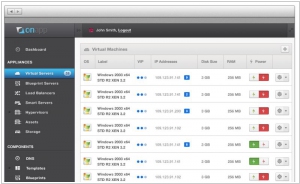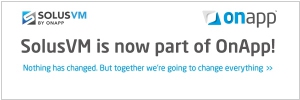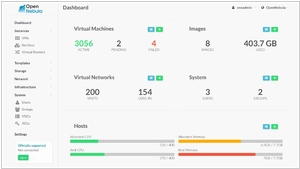OnApp vs OpenNebula
July 30, 2023 | Author: Michael Stromann
5

OnApp software enables Infrastructure-as-a-Service for hosts, telcos and other service providers. With OnApp in your datacenter you can use commodity hardware to sell public & private cloud services, dedicated servers, Virtual Private Servers, CDN, DNS, storage and much more, through one fully automated control panel.
See also:
Top 10 Cloud Management platforms
Top 10 Cloud Management platforms
OnApp and OpenNebula are both cloud management platforms, but they differ significantly in their focus and target audience. OnApp is a commercial cloud management platform that emphasizes ease of use and simplicity. It is designed to cater to service providers and businesses seeking a turnkey cloud solution, offering features like automated provisioning, billing, and user management. OnApp's user-friendly interface and pre-configured cloud templates make it a convenient choice for organizations looking for a hassle-free cloud management experience. On the other hand, OpenNebula is an open-source cloud management platform that focuses on flexibility and customization. It provides a more hands-on approach to cloud management, allowing users to build and manage private, public, and hybrid clouds tailored to their specific needs. OpenNebula's emphasis on openness and modularity makes it popular among IT departments and organizations seeking a customizable and adaptable cloud management solution.
See also: Top 10 Cloud Management platforms
See also: Top 10 Cloud Management platforms
OnApp vs OpenNebula in our news:
2014. Cloud marketplace provider OnApp buys VPS virtualization solution SolusVM

The London-based cloud automation company, OnApp, has acquired SolusVM, a virtual private server management system, with the aim of enhancing the demand for capacity within OnApp's federation. OnApp offers a marketplace that encompasses content delivery network (CDN), storage, and compute capacity. SolusVM, on the other hand, is widely used by numerous small service providers to effectively manage their virtual private servers (VPS). By incorporating SolusVM users into its ecosystem, OnApp aims to stimulate demand within its marketplace. The concept revolves around SolusVM users being presented with the option to not only add additional hypervisors but also to "simply purchase the required resources from OnApp suppliers and provide a combination of their own infrastructure and excess infrastructure to their customers."




